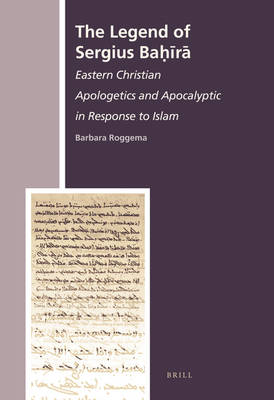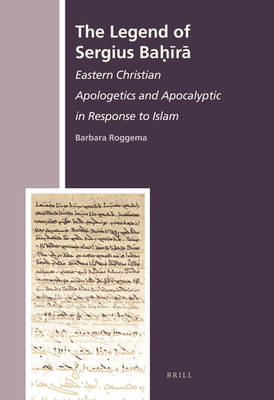
- Afhalen na 1 uur in een winkel met voorraad
- Gratis thuislevering in België vanaf € 30
- Ruim aanbod met 7 miljoen producten
- Afhalen na 1 uur in een winkel met voorraad
- Gratis thuislevering in België vanaf € 30
- Ruim aanbod met 7 miljoen producten
Zoeken
The Legend of Sergius Baḥīrā
Eastern Christian Apologetics and Apocalyptic in Response to Islam
Barbara Roggema
€ 425,95
+ 851 punten
Omschrijving
From the eighth century onwards, Christians living under Islam have produced numerous apologetic and polemical works, aimed at proving the continuing validity of Christianity. Among these is the Legend of Sergius Baḥīrā, which survives in two Syriac and two Arabic versions, and appears here in edition and translation. Being a counterhistory of Islam, it reshapes early Muslim traditions about a monk recognizing Muḥammad as the final Prophet by turning this monk into Muhammad's tutor and co-author of the Qur'an. In response to Muslim triumphalist propaganda, it portrays Islam's political power as predestined but finite and unrelated to its religious message. This feature sets the legend apart from similar Christian accounts of the origin of Islam, East and West, which are reviewed in this study as well.
Specificaties
Betrokkenen
- Auteur(s):
- Uitgeverij:
Inhoud
- Aantal bladzijden:
- 592
- Taal:
- Engels
- Reeks:
- Reeksnummer:
- nr. 9
Eigenschappen
- Productcode (EAN):
- 9789004167308
- Verschijningsdatum:
- 23/12/2008
- Uitvoering:
- Hardcover
- Formaat:
- Genaaid
- Afmetingen:
- 168 mm x 246 mm
- Gewicht:
- 1088 g

Alleen bij Standaard Boekhandel
+ 851 punten op je klantenkaart van Standaard Boekhandel
Beoordelingen
We publiceren alleen reviews die voldoen aan de voorwaarden voor reviews. Bekijk onze voorwaarden voor reviews.











